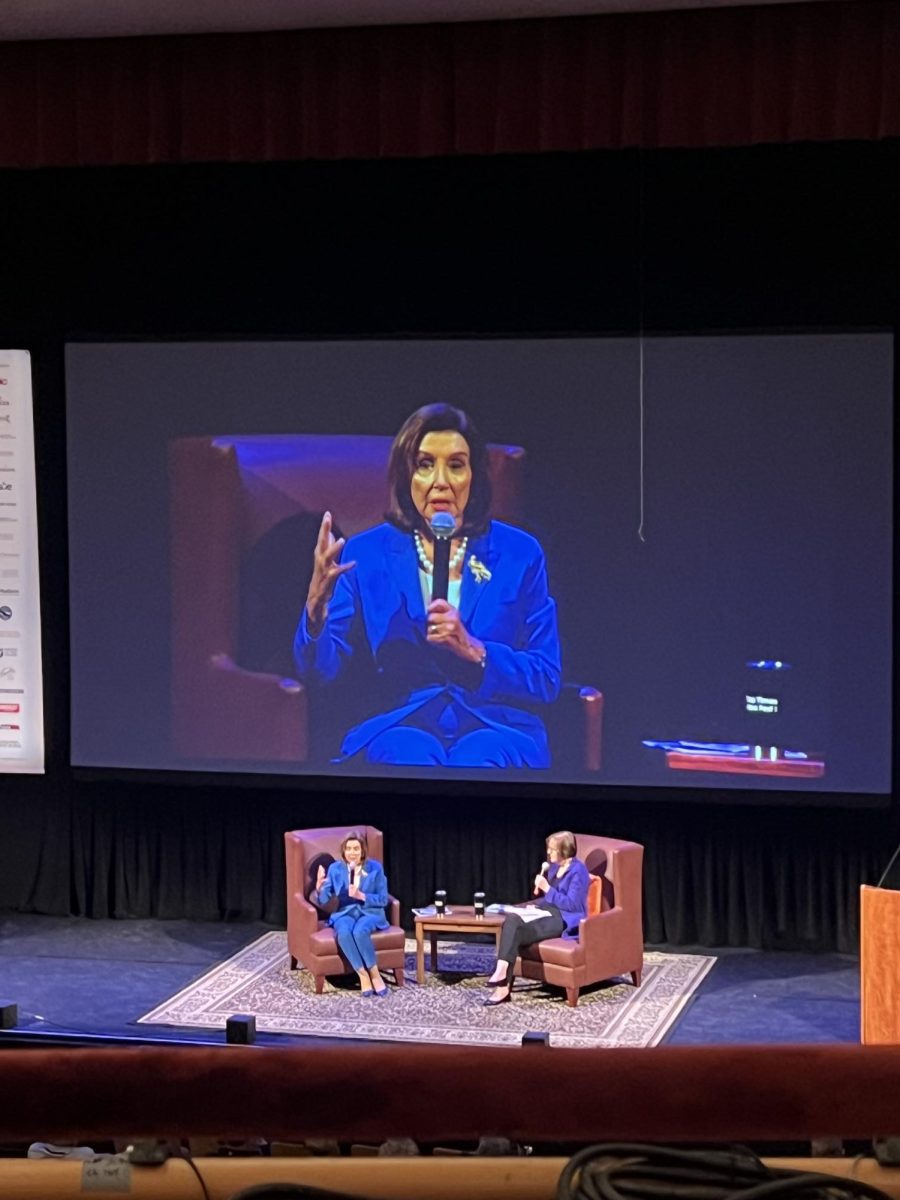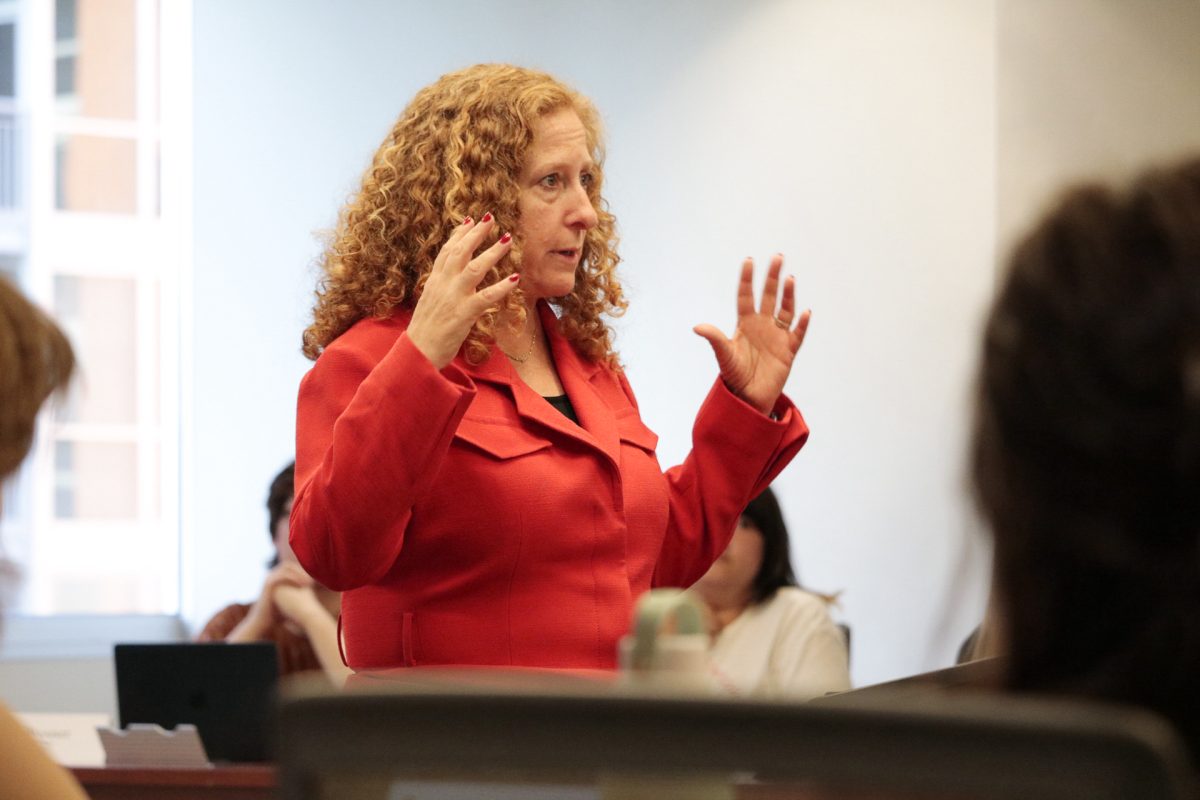Ten years ago, University of Wisconsin student Scott Southworth sued the university, alleging his First Amendment rights were denied whenever his tuition dollars went to student organizations whose views he did not agree with.
Although Southworth lost his claim, the implications of the United States Supreme Court ruling that Student Services Finance Committee members must maintain viewpoint neutrality have had significant and lasting impacts on student organizations on campus. In effect, the ruling has significantly altered the way segregated fees are doled out to student groups.
Today, several student groups are again lobbying the university, student government and courts — the difference being they have been stripped of their funding and want it back.
The main result of the Southworth lawsuit was a requirement that SSFC members maintain viewpoint neutrality when determining which groups qualify for funding. Initially, this led to SSFC funding every group that came through the door, said Kurt Gosselin, former SSFC chair and current SSFC legal counsel.
Mounting lawsuits from student organizations and a General Student Services Fund administrators said was ballooning out of control led to a rehashing of the SSFC eligibility standards in 2008.
These changes have led to a number of student groups finding themselves without the budgets — often in the range of $100,000 — they have come to rely on. These include organizations like the Campus Women’s Center, Collegians For a Constructive Tomorrow, Asian Pacific American Council, Wunk Sheek and the Jewish Cultural Collective who were all denied eligibility to receive GSSF dollars in the last two years.
Since the change in eligibility standards, the number of student organizations receiving GSSF money has decreased from 22 in 2007 to 14 today.
Confusion over the new eligibility standards was widely claimed both by groups that were denied and approved this year or last, saying the expectations for their eligibility hearings were ambiguous, poorly communicated and even unfair.
Many student organizations have had to completely retool their eligibility presentations, and in some cases, the overall structure of their group to cope with these changes. Even after such efforts, many groups have failed to secure funding.
More often than not, the sticking point for groups applying for eligibility ended up being the revised criteria requiring a group’s direct services be their primary focus.
The GSSF financial guide further defines this criteria as meaning a simple majority — 50 percent plus one — of the groups’ time must be spent on direct services that are available upon request, can be tailored subject to the needs of recipients, are accessible regardless of participation or membership in the group, are available continually throughout the year and are not an individual event, series of events, publication or a leadership development opportunity for group members.
Why were eligibility standards changed?
In many respects, the stimulus for change can be traced back to Southworth’s lawsuit.
In 2000, the United States Supreme Court case Board of Regents of the University of Wisconsin System v. Southworth,ruled against a UW student of conservative political leanings who argued mandatory student fees providing funding for student organizations with which he disagreed violated his First Amendment rights.
The Supreme Court found in a unanimous 9-0 decision that segregated fees constituted a limited public forum and were therefore constitutional, as long as they are allocated in a viewpoint-neutral manner using objective criteria.
From then on, SSFC was charged with maintaining viewpoint neutrality in all of their eligibility and budget hearing decisions.
The financial guide states “committee members must not take the viewpoint of the group or their own viewpoints about the group into consideration when deciding whether or not that group is eligible for funding.”
Violations of viewpoint neutrality were far too possible under the previous eligibility standards, according to SSFC Rep. Carl Fergus. The previous criteria generally said a student organization must provide a service and a significant other component.
“I think with the old criteria it was easy to hide behind the criteria and committee members could hide their intentions behind the wording of those criteria,” Fergus said.
On top of this new requirement that SSFC members ignore the viewpoints of a group as well as their own when making decisions, the future of the GSSF fund in general came under question in 2007 when former UW Chancellor John Wiley expressed concern the fund was spiraling out of control.
“He went so far as to say the GSSF probably would not be in existence in five years,” Gosselin added.
After extensive deliberation, SSFC members answered these threats by creating new standards in 2008 that determined eligibility based on numerical breakdowns of time spent on direct services — standards Williams called “the most viewpoint-neutral criteria SSFC has ever used.”
In addition to the newly established viewpoint-neutrality requirement, the newly narrowed eligibility standards have effectively cut the total GSSF budget more than in half. The total GSSF approved for the 2007-08 academic year was $3.6 million, and two years later $1.48 million dollars was approved, according to the report.
GSSF has traditionally been the second largest portion of the allocable segregated fees; however, over the 2008-09 fiscal year, the GSSF budget was the only allocable budget to undergo a considerable reduction.
The report cites the implementation of the new criteria, which more narrowly defined which groups would be eligible to receive GSSF money, as a primary factor for this reduction.
50+1 rule — effective or too vague?
While SSFC members hold this requirement to be straightforward and a necessary improvement, some student organizations adamantly disagree.
Zorian Lasowsky, CWC’s finance coordinator and a former SSFC member, believes CWC was denied eligibility solely upon the question in the application that reads “please explain how your direct service(s) will be the primary focus of your group,” as it reads in the GSSF financial guide.
“It’s super vague, the fact that groups have to interpret this vague question in the specific way that SSFC members want — it’s kind of manipulative actually,” Lasowsky said.
His main criticism is SSFC members expected a numerical breakdown of the total time spent on direct services, yet this was not made clear to the group before their hearing.
SSFC members maintain, however, that all student organizations were provided with ample information and opportunities to clarify the committee’s expectations.
SSFC Chair Brandon Williams said on top of the financial guide, which has an entire section dedicated to eligibility, he met with every group before their decision, hosted an information session in August and has been in constant communication with groups applying for eligibility.
“I tried everything on my end to make things clear for people,” Williams said.
When asked whether there was anything that could have been done to make things more clear, he answered no and encouraged groups to contact him if they had questions.
“They get an e-mail from me at least four times a week; I’m not a ghost,” he said.
In fact, some groups did take the initiative to seek out further guidance on their eligibility application.
Coordinators for the Multicultural Student Coalition made a concerted effort to lobby several SSFC members and meet with them personally to discuss eligibility expectations.
“There was a good attempt made (to clarify expectations), but I feel personally that I would have been really lost had I not lobbied with two people and talked to [Williams] on many occasions about what to expect and what to include,” said Lena Marx, executive staff member for MCSC.
Similar sentiments were voiced from CWC coordinators as well, who also lobbied an SSFC member after they were denied at their first hearing. Their attempt proved less successful when they were denied at two subsequent appeal hearings.
“At the end of the day, I think the process in general, regardless of these changes, is not super transparent, and I think it’s really hard to educate groups to get all the information they need to really have a quality application to represent their group accurately,” said Tina Trevi?o-Murphy, CWC’s programming coordinator.
The American Indian group Wunk Sheek was also denied eligibility on the grounds they failed to meet this direct services requirement, also claiming ambiguity of expectations prevented their approval. Most of their focus was on producing various events, which is not considered a direct service under current SSFC eligibility standards, according to Gosselin.
This is not the first year controversy has arisen over eligibility standards since the change occurred in 2008.
SSFC’s denial of Collegians for a Constructive Tomorrow and Badger Catholic — formerly known as UW-Roman Catholic Association — among others, have led to lawsuits against the university due to viewpoint neutrality claims.
“I don’t know if it’s the best rule, but it’s the best way I have ever heard,” Williams said. “Because it is the General Student Services Fund, we give money for services. If a group has questions whether they are spending the majority of their time on direct services to all students, that would raise some questions in my mind as to why we are paying for them.”
New standards still a matter of debate
Whether these new standards fulfill the legal obligations of SSFC as well as satisfy the needs and desires of the UW campus remains a contentious debate.
Many argue while they understand the motivations behind the new criteria, the narrowed standards have alienated groups the general campus not only wants but needs.
While certainly there was a rational behind the decision to deny certain groups funding, Vice Provost of Diversity and Climate Damon Williams worries such denials will further feelings of marginalization in diversity-oriented groups.
“I think that the more diverse our organizations are on campus, I think the more we embody the principles of inclusion and excellence,” Williams said. “I think that while everything is not possible, when we go back in the other direction away from those things, it chips away at the idea of being an inclusive environment.”
While several of the main groups denied funding this year did happen to have a diversity focus, Fergus said it is not a matter of SSFC defunding diversity oriented groups. Several such groups, such as MCSC and the Working Class Student Union, were unanimously approved funding, in fact.
He added it is important to keep in mind there are other sources of funding available to groups on campus that do not qualify for GSSF funding.
When the new standards were created, it was actually predicted some large and long-standing organizations would no longer qualify for GSSF money, Gosselin said. With this anticipation, SSFC increased the amount of money available through certain grants from the Associated Students of Madison Finance Committee.
In the 2008-09 fiscal year, these grants — including event grants, operations grants and travel grants — totaled $500,000.
However, these grants do not cover paid staff positions.
In the case of CWC, according to Trevi?o-Murphy, not being able to pay staff members will be a huge detriment. Moreover, the funds available through these alternative grants are far from sufficient to sustain the CWC, which has come to rely on a $100,000 budget.
Lasowsky and others are also concerned the allocation of GSSF funds no longer represents the desires of the campus community, but are rather solely at the discretion of SSFC.
“For any government to be effective, it should do things that the people it’s designed to represent would want, and I don’t feel that [SSFC] is doing that right now,” Lasowsky said.
Garnering the level of student input that would be required for SSFC’s decisions to accurately represent the interests of the larger student body is no easy task on a campus that often exhibits widespread apathy toward student government.
“A lot of the campus is apathetic and that is a problem and that is something SSFC has to deal with every year, but I don’t see SSFC members going into dorms and asking what people want,” Trevi?o-Murphy said.
Furthermore, friction has emerged around how SSFC criteria determine what a direct service is.
In particular, this involves criteria requiring a direct service be “aimed at reaching all university students.”
Lasowsky argued this is a logical impossibility, saying the only thing that could possibly be aimed at every student is something every student requires to survive. He added it would make more sense to say the direct service is ‘available’ to all students on campus.
“Our child care programs are totally open to all students, but if you don’t have a child, you’re not going to participate,” Trevi?o-Murphy said. “I still think that is a direct service to campus and they will really be missing something if we are not doing that.”












